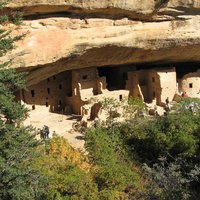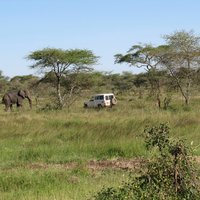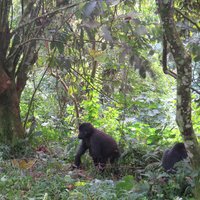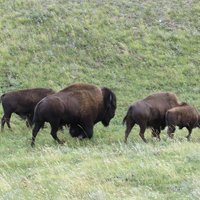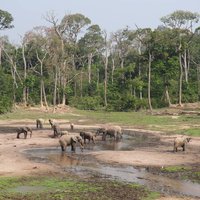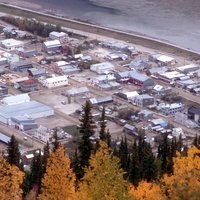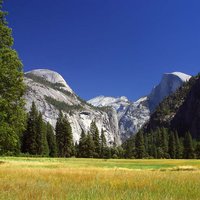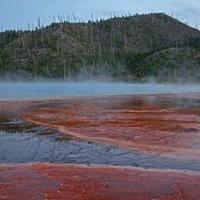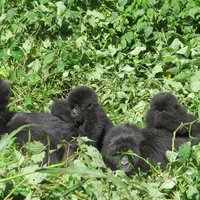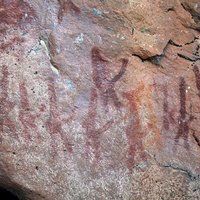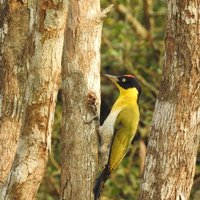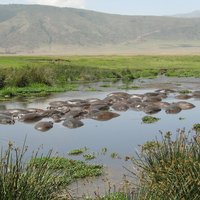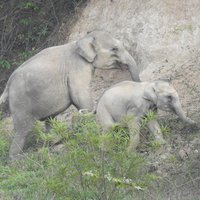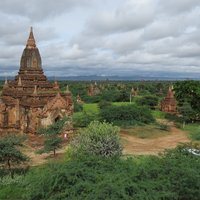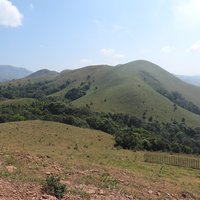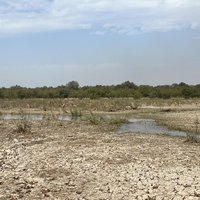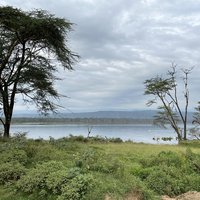Connected Sites
-
Ute. “Surveys found that many of the highest quality Anasazi ruins were on Ute land outside of the park. The government thus began a long process of trying to acquire these lands from the Utes through land trades… The Utes had no interest in trading. However, government negotiators eventually pointed out that Congress could simply take their land for nothing, and the Utes reluctantly agreed to exchange 10,000 acres for 19,500 acres on Ute Mountain. When a later USGS survey found that the park still excluded an important site, Congress passed a bill unilaterally taking 1,320 more acres for Mesa Verde, without notification to the Utes”
See scholarship.law.umt.edu
-
Maasai. Anglo-Maasai Agreement 1958 – “Under this agreement, the Maasai were expected to have moved out of Serengeti National Park by 31 December 1959 and in the main they had moved by the deadline. Some force was used against those who remained past the deadline, and all were considered gone by the end of 1960”
-
Batwa. “The establishment in 1991 of Bwindi and Mgahinga forests as national parks resulted in the permanent eviction and exclusion of the Batwa from their homeland” (WHS-IPR)
-
Glacier - Blackfeet. “To garner funds for food and basic supplies, the tribe then began to sell pieces of their remaining land to the federal government. In 1895, they sold 800,000 acres west of the current reservation; lands that would form the eastern half of Glacier National Park in 1910… (Certain) Blackfeet rights were guaranteed in the language of the 1895 Agreement…….. In 1932, a US District Court decided that these reserved rights were extinguished upon designation of the national park, arguing that the land in question ceased to be "public land" once it had become a national park”
See www.conservationandsociety.org
-
Baka . “This pattern is similar in CAR and Congo and, in all three countries, large areas customarily used by Pygmy communities have been included in national parks, where all access is prohibited.” (WHS-IPR)
-
Moosehide Village Relocation "As one of the most ancient processing and gathering sites for the Tr'ondëk Hwëch'in, it was chosen for the relocation of the community, after the occupation of Tr'ochëk, and it became the first permanent village of the Tr'ondëk Hwëch'in." - AB Evaluation "The serial nomination is held to attest to the Tr'ondëk Hwëch'in's ancestors' relationship with their homeland, to the alteration of this relationship due to the encounter with non-Indigenous people, and to the evolution of their relationship between 1874 and 1908, from initial interaction to the rapid marginalisation, displacement and segregation, and also attempted assimilation, of the Indigenous people." - AB Evaluation
-
Twa. “The expulsion of the Twa from their forests had already begun before the establishment of the National Park, at the end of the 1960s, and was conducted by staff from the Congolese Institute for Nature Conservation (ICCN) with the support of the armed forces. Starting around 1967, the Twa who were living in what was the Kahuzi-Biega Reserve were forced out of the area on the orders of the provincial authorities” (WHS-IPR)
-
"In 1931, the last stronghold of the San in South Africa was gazetted as the Kalahari Gemsbok National Park, and whilst park management initially allowed the San to continue living in the park, they were soon evicted for good." (see link)
See www.nationalgeographic.co.uk
-
Ahwahneechee. “in 1851, California soldiers "discovered" the valley while pursuing the Ahwahneechee.” The soldiers expelled the Ahwahneechee and renamed their valley "Yosemite." But the Ahwahneechee returned, and worked humiliating jobs entertaining tourists as "Indian performers" to remain in their homeland. The national park finally evicted the last of them and burned down their remaining homes in a fire-fighting drill in 1969.” (USNP-IP)
-
Shoshone “When Yellowstone became the first official National Park in 1872, it was soon clear that the Shoshone were not going to be tolerated ….in 1879, the tribe was removed from the park area by dint of a never-ratified treaty from 1868” (USNP-IP)
-
The protected area was extended in 1929 by Virunga National Park, which encompassed the Virunga Mountains, parts of the Rutshuru Territory and the plains south of Lake Edward. Its initial size of 2,920.98 km2 (1,127.80 sq mi) was enlarged step by step in subsequent years.Indigenous people, foremost Hutus and Tutsis lost their traditional land rights in this process, and were evicted from the protected area.(wiki)
-
Khoesan/Juc’hoansi “The most immediate impact of this was on the Juc’hoansi village because it fell inside the core zone. Negotiations to move the settlement began in 1994 and, in 1997, the Juc’hoansi moved” (WHS-IPR)
-
Karen/Hmong. “The lead-up to the nomination had already seen a considerable amount of coerced resettlement of communities from both Huai Kha Khaeng and Thung Yai Naresuan. Karen villages in Huai Kha Khaeng had been removed in the 1970s when the Wildlife Sanctuary was established and when the Sri Nakarin Dam was built and later flooded their settlement areas. During the 1980s, most villages of the Hmong ethnic group were removed from the Huai Kha Khaeng and Thung Yai Naresuan wildlife sanctuaries” (WHS-IPR)
-
Maasai. “Perhaps the most critical land loss was experienced by the pastoralists living on the floor of the Ngorongoro Crater. As a consequence of the villagization programme of the mid 1970s and the hardening conservation rule they were evicted from the Ngorongoro Crater in the late 1970s. Grazing and watering of livestock in the Crater, covering an area of some 250 square km, were prohibited -
See www.diva-portal.se
-
"Karen communities who are asking to be allowed to return to their traditional homelands from which they were evicted since 1996" (AB ev)
-
"Historically, Bagan consisted of temples intermingling with housing, work places and farms. Today, there are still several villages scattered around the monuments. They are built around and incorporate several old pagodas. However, in 1990 the government ordered the population living in the central village known as Old Bagan—over 5,000 people—to move to New Bagan, four kilometres to the south"
See www.academia.edu
-
Adivasi. “The widespread illegal evictions that were taking place across the country in 2002 under the guise of reversing encroachment into the forests, and the consequent state violence, led to a nationwide struggle of Adivasis asserting their traditional and customary rights, insisting that ‘historic injustice’ be rectified through the recognition of their rights to their lands and resources” (WHS-IPR)
-
"The park was founded in 1954 as a means to conserve the area’s high biodiversity. It was later expanded in 1969, and now encompasses 9130km2. The establishment of the park led to the abandonment of 18 villages, which were relocated outside of the conservation area. The population of these villages either established entirely new settlements around the park or were integrated into pre-existing, traditional villages"
See www.cambridge.org
-
Bogoria: Endorois. “The Government of Kenya forcefully evicted them from their area of habitation on the shores of Lake Bogoria after the Lake Bogoria Game Reserve was created in 1973.” (WHS-IPR)

